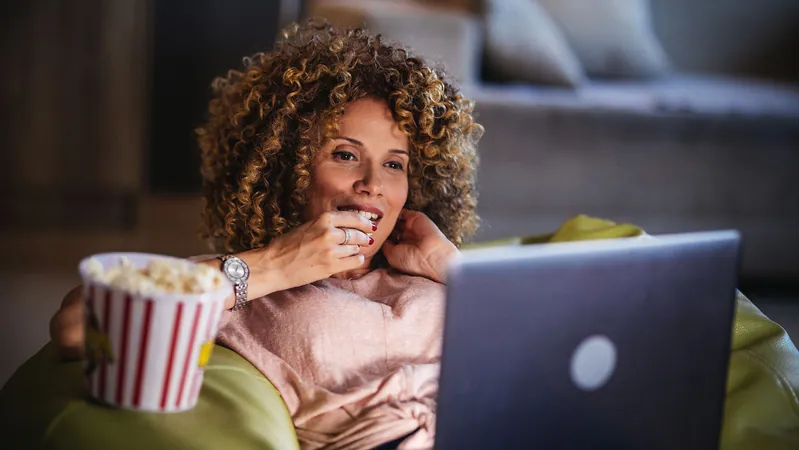
Women Struggle More with Chronic Urticaria: Shocking Findings in Midlife
2025-09-20
Author: Wei Ling
New Study Reveals Gender Insights in Chronic Urticaria
A groundbreaking study published in the *Journal of the European Academy of Dermatology & Venereology* has uncovered that women suffering from Chronic Spontaneous Urticaria (CSU) are facing significantly greater challenges than men. The most alarming findings suggest that this disparity becomes especially severe in women aged 51 to 65.
The Gender Divide in Disease Impact
CSU, a painful dermatological condition that manifests as chronic hives and swelling, has long been known to affect women disproportionately. However, this extensive study involving over 4,130 patients across 29 countries shows that the gender differences in disease burden and treatment outcomes are much more significant than previously thought.
Diving into the Data
The research analyzed data from the Chronic Urticaria Registry (CURE) and found that a staggering 72.4% of the CSU patients were women. While the female predominance began in childhood, the gap widened noticeably after age 30, escalating after the age of 50.
More Severe Symptoms for Women
Female patients consistently reported a more intense experience with CSU compared to their male counterparts. For example, 65% of women experienced angioedema, often with wheals, compared to just 59.2% of men. In addition, systemic symptoms like joint pain were significantly more prevalent in women.
Understanding the Causes Behind CSU Exacerbation
The study also revealed that women were more likely to identify food triggers and stress as aggravators of their symptoms. This new information highlights the need for women to manage stress and pay attention to their diets, potentially keeping a food diary to pinpoint culprits.
Quality of Life Hits Harder for Female Patients
The quality of life for women suffering from CSU was notably worse, with reports of disturbed sleep and a higher percentage of uncontrolled symptoms, regardless of treatments used. These burdens intensified in middle-aged women, particularly those between 51 and 65, who also faced additional health issues such as thyroid and autoimmune diseases.
Menopause's Role in Disease Severity
The research suggests that changes associated with menopause may be a significant factor contributing to the increasing severity of CSU in midlife women. Hormonal shifts could result in heightened inflammation, exacerbating the condition further.
Future Directions in Research
The authors acknowledged certain limitations in the study, such as the small sample size among younger patients and the lack of comprehensive Urticaria Control Test values. They also proposed that future research could explore whether female CSU patients develop different autoimmune patterns as they age.
A Call for Compassionate, Tailored Care
The findings highlight the crucial need for a personalized approach to treating CSU, especially for middle-aged women who experience a unique set of challenges. The authors concluded that recognizing the complex interplay of immunology, hormones, and comorbidities is vital for providing effective care.





 Brasil (PT)
Brasil (PT)
 Canada (EN)
Canada (EN)
 Chile (ES)
Chile (ES)
 Česko (CS)
Česko (CS)
 대한민국 (KO)
대한민국 (KO)
 España (ES)
España (ES)
 France (FR)
France (FR)
 Hong Kong (EN)
Hong Kong (EN)
 Italia (IT)
Italia (IT)
 日本 (JA)
日本 (JA)
 Magyarország (HU)
Magyarország (HU)
 Norge (NO)
Norge (NO)
 Polska (PL)
Polska (PL)
 Schweiz (DE)
Schweiz (DE)
 Singapore (EN)
Singapore (EN)
 Sverige (SV)
Sverige (SV)
 Suomi (FI)
Suomi (FI)
 Türkiye (TR)
Türkiye (TR)
 الإمارات العربية المتحدة (AR)
الإمارات العربية المتحدة (AR)